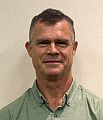FLASHBACK TO 2008: “We are turning the tide because development and redevelopment projects are now incorporating features for rainwater runoff capture,” stated the City of Nanaimo’s Dean Mousseau at the Vancouver Island Learning Lunch Series, a peer-based education initiative under the umbrella of the Water Sustainability Action Plan for British Columbia

The Inland Kenworth truck and heavy equipment facility in the City of Nanaimo illustrates what can be accomplished through collaboration when a municipality challenges a development proponent to be innovative. “We view this project as the one that has changed the thinking of the consulting community in Nanaimo, particularly on redevelopment projects,” stated Dean Mousseau when he reflected on the changes that had taken place in Nanaimo as an outcome of establishing the Inland Kenworth precedent for ‘designing with nature’.










